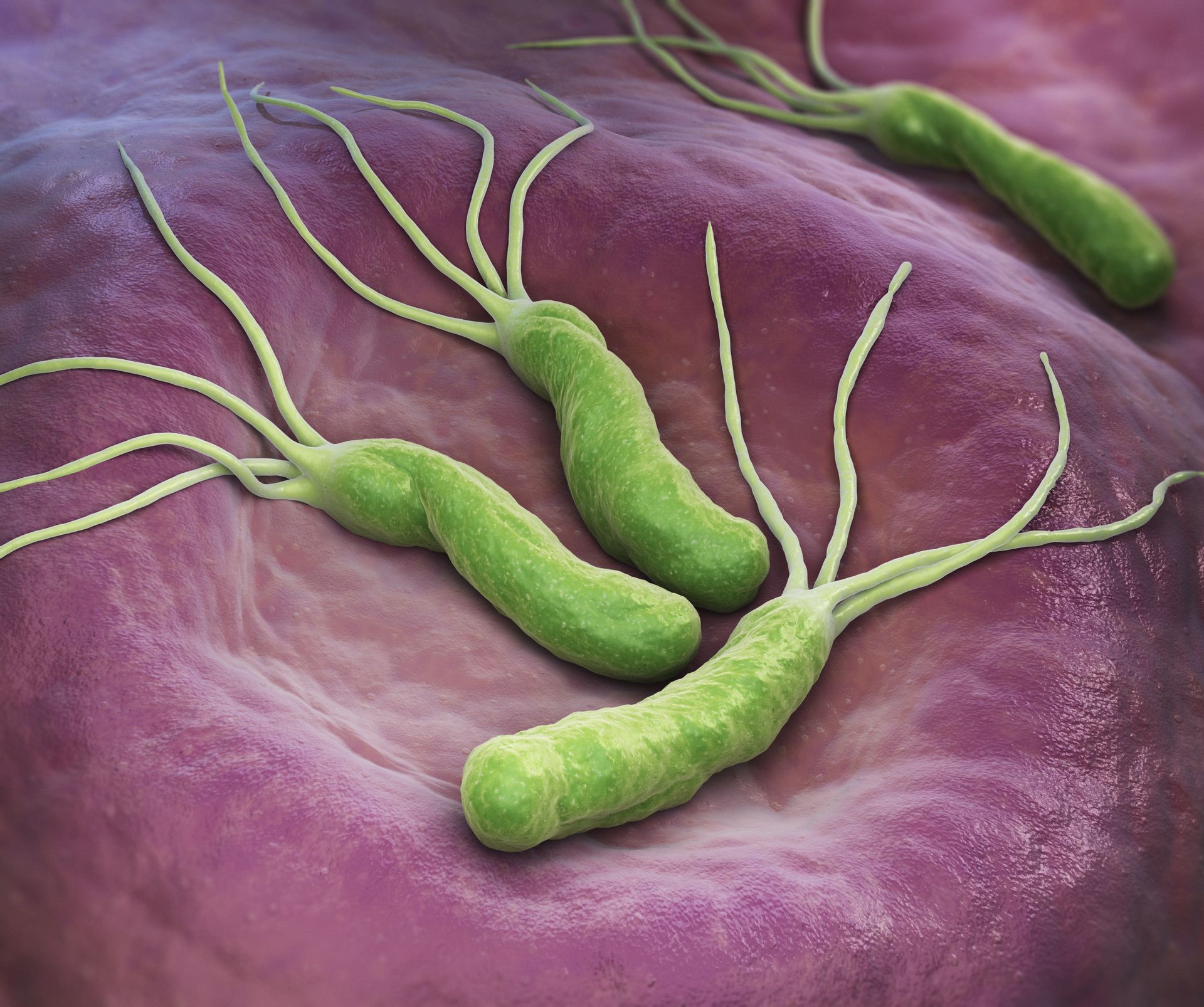All categories
Helicobacter pylori

Helicobacter pylori (Helicobacter pylori) is one of the most common diseases in the world; it is a bacterium that colonizes different parts of the stomach and duodenum. The microorganism, which is simply called "Helicobacter", provokes the development of many diseases of the gastroduodenal zone: gastritis, duodenitis, stomach and duodenal ulcers. A distinctive feature of the entire Helicobacter genus, which includes Helicobacter pylori, is the ability to survive and reproduce in an acidic environment, which is specifically attributed to the contents of the stomach. The spiral shape and flagella allow bacteria to penetrate the thick layer of mucus that protects the stomach lining and duodenum from acid attack. The bacterium becomes stable and begins to breed in the gastric mucosa. In the process of vital activity, Helicobacter pylori synthesizes a number of toxins, under the influence of which the cells of the gastric mucosa are damaged and die, and the protective layer of mucus dissolves. As a result, the acidic environment begins to directly affect the unprotected cells of the mucous membrane, causing inflammation and ulcers. The infection is transmitted by contact and everyday life: through body hygiene kit, through dishes, door handles in rooms, etc. In addition, transmission is possible with an ordinary kiss: Helicobacter is present in dental plaque and in the secretions of the salivary glands. Considering that re-infection with the bacterium is possible, it is necessary to provide treatment for both the patient and all his family members, to exclude re-infection.

